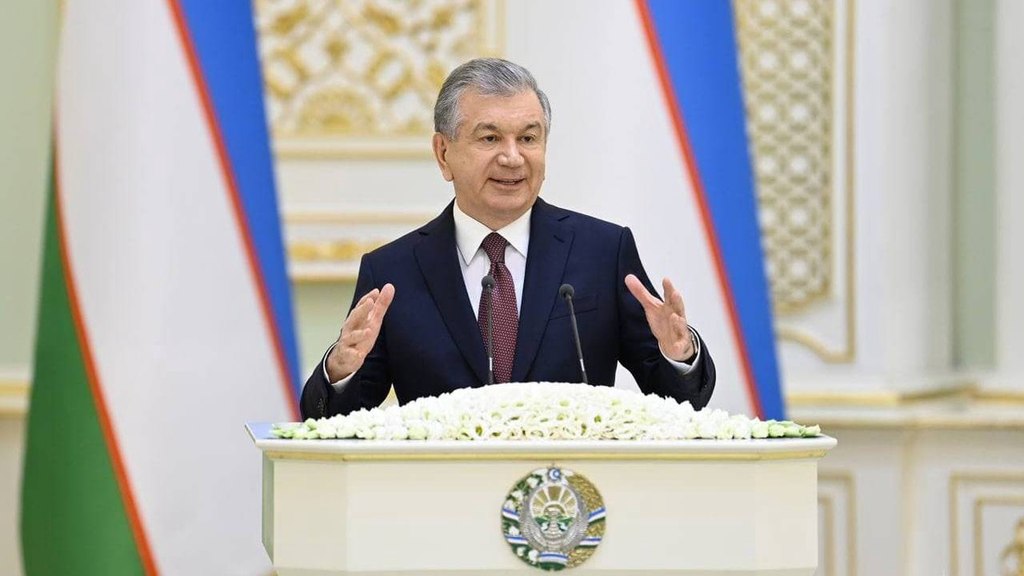Mirziyoyev (in words) wants more opposition
In his speech at the inauguration of the new parliament, the president of Uzbekistan calls for ‘a healthy confrontation between opposing views’ and rules for the representation of minor parties, in a country where groups truly opposed to the government are excluded from electoral competitions. Women and young people are on the rise among local MPs.
Tashkent (AsiaNews) - Uzbekistan's president, Šavkat Mirziyoyev, has opened the first sitting of the Oryz Mažilis, the republic's parliament in the new legislature following the early elections that followed constitutional changes and the re-election of the president himself for a seven-year term. According to the unchallenged leader since 2016 - the year of his rise to power after a quarter of a century of post-Soviet dictator Islam Karimov - ‘more opposition is needed in Parliament’.
To achieve this, the president has proposed increasing the ‘guaranteed seats’ for opponents from three to six, giving each representative of formally opposition parties a parliamentary committee chairmanship, and at least two vice-chairs in the other committees. Mirziyoyev believes that ‘if healthy competition and confrontation between opposing views moves from the election campaign to the halls of the legislative chamber, this will undoubtedly help to draft laws that serve the interests of the people’.
In fact, he notes that ‘in the past elections, the programmes and ideas of the political parties differed from each other, there was an obvious struggle between different political ideologies’, without specifying in detail these more representative differences, since groups that are truly opposed to the president's policies are not admitted to electoral contests. For Mirziyoyev, ‘in the new era that has opened, parliament must become the true home of the people, and the Chamber a creative place for generating ideas through constructive discussion and debate’.
Priorities were then set out on which to ‘unleash the creative energies of all parts of Uzbek society’, starting with the strengthening of a general medical insurance system. There is also a great need for investment support, especially for the construction of schools and kindergartens, the development of legal bases for the most innovative financial technologies, help for start-ups and franchising, the development of regulations for the use of artificial intelligence, and the expansion of market mechanisms to the energy sector.
The president was pleased to note that the Lower House of the Mažilis, the one in charge of preparing bills, was 60 per cent renewed, with 87 new deputies compared to 63 re-elected. Of these, 11 are under 35 years old, and 38% of all deputies are women, ‘the highest indicator in the whole of Central Asia’. For the first time in Uzbekistan's history, a mandate was won by a citizen with a disability.
The speaker of parliament was confirmed in the person of Nuriddin Ismailov, who has held the post since 2015, and there will be only two deputy speakers instead of the previous seven. Two representatives of the Liberal Democratic Party, Mavluda Khodžaeva and Rakhimžon Khakimov, have been appointed to these posts. For the period of the deputy speaker's office, they will suspend their participation in the party, and may not be members of the relevant parliamentary group.
The Senate, the ‘Upper House’ of the Olij Mažilis, also took office in recent days, gathering four representatives from each region of the country instead of the previous six, reducing the total number of senators from 100 to 65. In addition to politicians representing regional administrations, the president added 9 senators of his own appointment, including the youngest of them all, 30-year-old Ališer Sadullaev.
According to data from the Election Committee, 56.6% of the members of the Senate are over 60 years old, 41.6% are between 40 and 60. According to tradition, the president of Žokargi Keneš, the parliament of the Karakalpakstan autonomous region, was added to the Senate, along with the governors of regions throughout Uzbekistan and the mayor of the capital Tashkent. Finally, the parliament once again confirmed Abdulla Aripov as prime minister, at the proposal of Mirziyoyev, who explained that the country is ‘entering a new stage of its development with many responsibilities, and we will no longer have to work with the criteria of the past’, indicating in Aripov the ‘new leader’.







.png)










